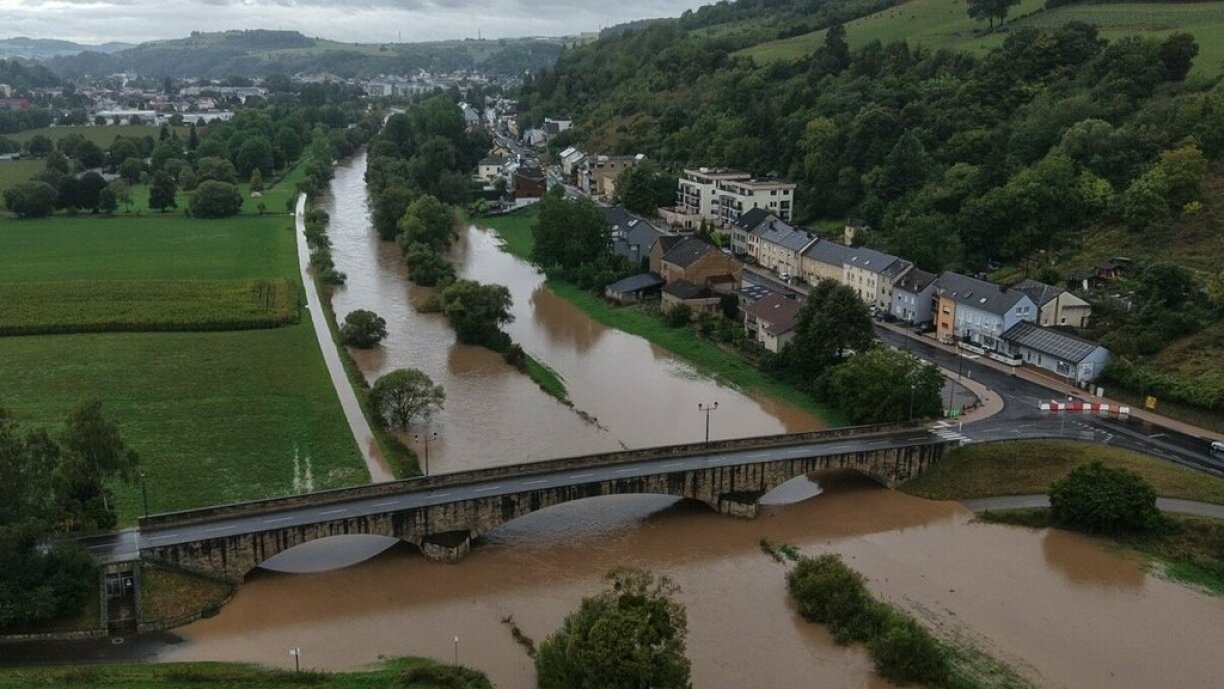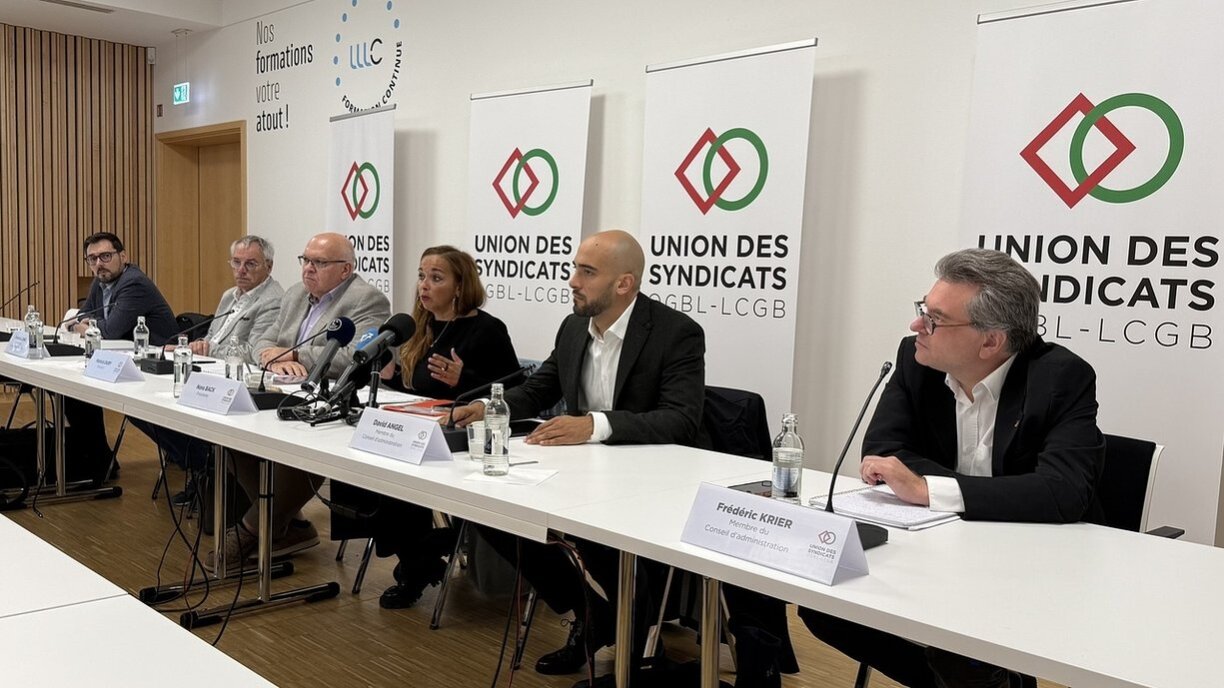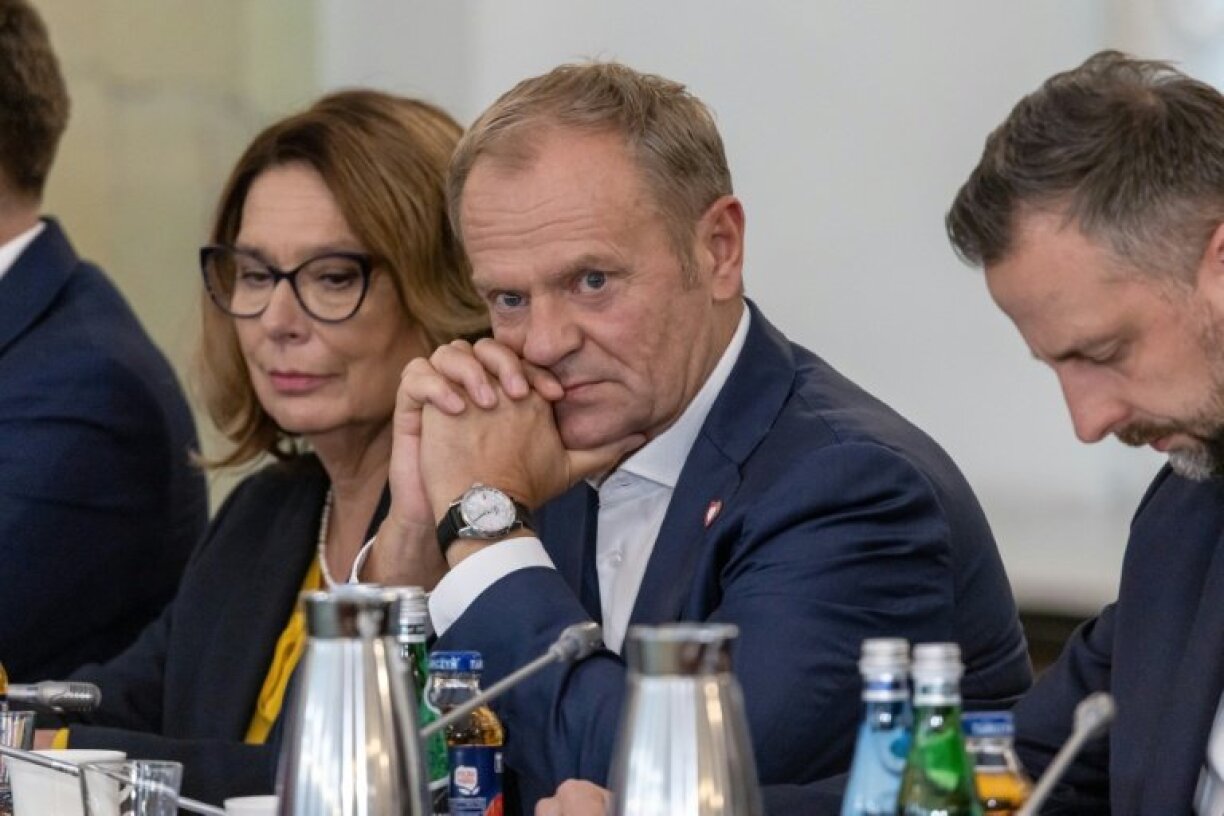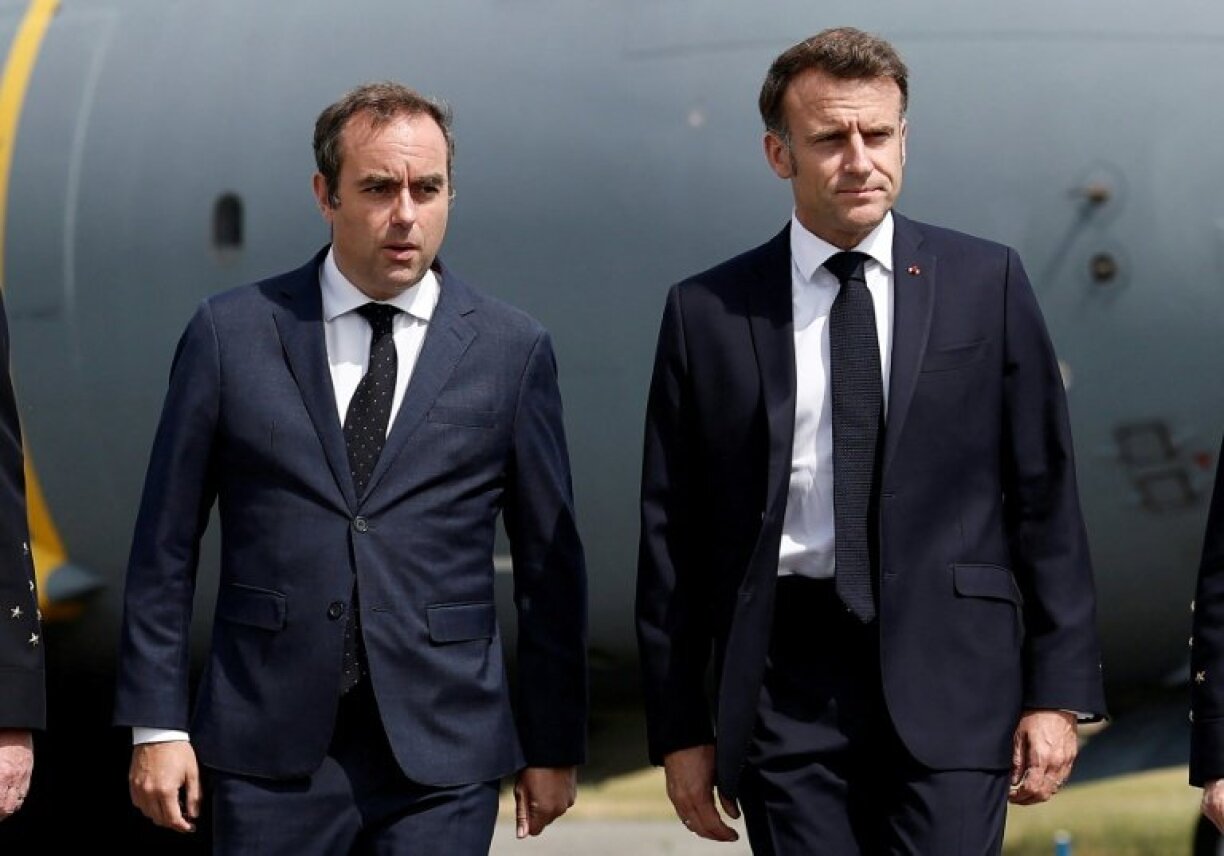
Here are five things you should know at the end of this week:

Luxembourg teachers’ union SEW has outlined critical demands for the coming school year, highlighting tensions over resource allocation, the rollout of the French literacy programme, and systemic challenges in supporting vulnerable students.
‘Staff not doing well’ – Luxembourg’s teachers’ union (SEW) has raised the alarm over conditions in primary schools as the new academic year begins, citing underfunding, excessive bureaucracy, and poorly implemented inclusion policies. The union warned that Cycle 1 classrooms face critical challenges, with many children lacking diagnoses or support, and called for a second teacher in every class.
It also criticised the rapid rollout of the new French literacy project, arguing it risks sidelining vulnerable students and diverting resources from those with learning difficulties. SEW officials urged a more pragmatic approach, such as teaching German as a foreign language, and warned that the ministry has yet to fully consider the long-term impact on secondary education.
Back to school – As nearly 118,000 pupils prepare to return to Luxembourg’s secondary schools on 17 September, teachers, families, and school staff are busy with last-minute preparations ranging from timetables and renovations to shopping for supplies. For more than 5,700 students, it will mark their first day in a lycée (high school), bringing both excitement and nerves.
School leaders describe the run-up as “normal madness”, with class lists, staffing, and building maintenance all finalised in the summer months. To ease the financial burden on families, the state provides automatic back-to-school allowances of €115 per child from age six and €235 from age twelve.
Luxembourg’s student population has grown nearly 14% since 2019. Public schools host the majority, though international programmes are expanding, and the Lycée Technique du Centre remains the country’s largest. Including adult education and language courses, nearly 179,000 people are in education. Teacher numbers now exceed 12,500, while childcare places have risen to more than 71,000, with over 63,000 children benefiting from the state’s Chèque-service accueil scheme.
It’s that time of year – As Luxembourg’s pupils return to school, police are stepping up their annual safety campaign around school zones, with more officers monitoring traffic, speed, and parking. Fluorescent vests will be distributed to the youngest children, alongside a new competition to decorate them, while parents and drivers are reminded to model safe behaviour. Authorities stress caution on the roads, noting that children may not fully grasp traffic dangers, and encourage both families and motorists to prioritise visibility, patience, and road safety awareness.
Education policy also remains in focus. The government has rejected calls to issue secondary school diplomas in Luxembourgish, insisting that keeping them in French, German, and English best supports international mobility. While acknowledging efforts to strengthen Luxembourgish, officials said diplomas are not the right instrument for this, pointing instead to projects like developing specialised glossaries.
Meanwhile, Education Minister Claude Meisch announced a major reform: from 2026/27, French literacy will be generalised in primary schools, starting in kindergarten year two, as part of broader changes to expand equality, inclusion, and opportunities in both primary and secondary education. Plans include more support staff for children with special needs, new vocational and academic tracks, and raising the school leaving age from 16 to 18, with the minister promising that reforms will reduce both inequality and grade repetition.

The Water Management Authority highlighted that previous experiences had helped limit the impact of the massive downpour, but warned that climate change will only make the phenomenon more frequent.
Despite the purported efficient response, several people were still affected by the resulting floods, and bemoan the inaction of local authorities that lead to massive losses.
When it rains, it pours – Luxembourg faced record-breaking rainfall earlier this week, with up to 149 litres per square metre in Mersch, leading to widespread flooding, blocked roads, and nearly 400 emergency interventions between Monday and Tuesday – with no reported injuries. Firefighters, police, and road services were heavily mobilised as around 12 people were evacuated or rescued, including several from vehicles, while three were temporarily rehoused.
Authorities confirmed the downpour was unprecedented, affecting at least 24 communes and prompting a national crisis response. Around 20 roads remained closed on Tuesday morning, dozens more were affected, and speed limits were reduced across the motorway network as crews cleared floods, fallen trees, and landslides.
More to come – Luxembourg escaped major damage from this week’s record rainfall thanks to better coordination, local flood projects, and favourable conditions, according to Water Management Authority director Marc Hans. He said the staggered nature of the downpours and soils still able to absorb water prevented the widespread devastation seen in 2021, while improved planning, river renaturation, and residents’ own protective measures also helped limit the impact.
Hans warned, however, that climate change is making extreme downpours more frequent, with Luxembourg already facing several high-water events last year. While measures such as retention basins and local defences are planned, he stressed that no single solution is enough and that resilience depends on combining many strategies to manage growing risks.
Hydrologist Laurent Pfister of the Luxembourg Institute of Science and Technology (LIST) echoed the concerns, stating that the country “got off lightly”.
Down the drain – While authorities salute the efficient response, residents of Val de Hamm will strongly disagree, as they are once again left clearing the wreckage after severe flooding, accusing Luxembourg City of years of inaction despite repeated disasters.
They recall how assurances made after a retention basin was built in 2008 have proven hollow, as water levels have only worsened with continued urban development. Flooding, which dates back decades, reached a record 1.8m this week, destroying homes and business equipment.
Locals report devastating losses, from ruined property to businesses left with nothing to salvage, while others describe their homes as uninhabitable despite protective measures installed after previous floods. Many denounce stalled projects and poor insurance coverage, warning that repeated damage has left them trapped with houses no one would buy. As they put it: “The more they build, the more problems we have.”

On Thursday, OGBL president Nora Back confirmed that OGBL and LCGB would no longer negotiate on the Standing Committee on Labour and Employment, calling it a ‘farce’.
The decision comes in the wake of the collapse of social negotiations. Earlier this week, CGFP head Romain Wolff voiced the civil servants’ union displeasure after the third round of talks.
The subject of working hours continues to be one of the main stumbling blocks in the negotiations, with unions criticising the employers’ reported push for a new legal maximum of 52-hours per week.
Strikes on the horizon? – Luxembourg’s trade unions OGBL and LCGB have pulled out of the government’s Standing Committee on Labour and Employment (CPTE), accusing Prime Minister Luc Frieden of undermining the tripartite negotiation model.
Union leaders said recent talks on working hours collapsed after the government ended discussions prematurely, despite progress between employers and unions, leaving the CPTE without purpose. They are now demanding direct talks with the labour minister, warning that the government’s approach threatens Luxembourg’s social model and could spark large-scale strike action, though no protest dates have yet been announced.
‘All for nothing’ – CGFP president Romain Wolff has condemned the collapse of Luxembourg’s final round of social talks, calling it “a stain” on the country’s social model and accusing the government of pre-drafting pension reforms with little room for negotiation.
Despite a proposed package including longer working lives, higher state contributions, and tax incentives for private savings, Wolff criticised the process as meaningless and warned that pension indexation could now be suspended depending on fund revenues. He argued the government reneged on earlier commitments, raised concerns over hidden legislative manoeuvres, and highlighted growing pressure on the pension system amid slowing employment growth.
While open to measures like capping pensions and lifting contribution ceilings in the private sector, Wolff said the talks failed to deliver any real compromise and left key funding questions unanswered.
Rise and grind... a bit longer – Luxembourg’s debate over working hours has escalated after trade unions withdrew from the government’s Standing Committee on Labour and Employment, accusing officials of stonewalling negotiations.
Union leaders denounced employer proposals to extend the legal maximum from 48 to 52 hours per week, reduce mandated rest periods, and calculate working time over a year instead of monthly. They argue this would allow employers to overwork staff during peak months without paying overtime, while business groups push for more flexibility, including changes to annual, parental, and maternity leave. The unions say an annual reference period could only be acceptable if secured through collective agreements with proper compensation.

Poland’s fighter jets and allied aircraft fired on “hostile objects” after multiple Russian drones violated its airspace during a Wednesday assault on Ukraine, marking the first time a NATO member has attempted to shoot down invading drones.
European officials – including Luxembourg’s Defence Minister Yuriko Backes – and allies reacted to the incursion, condemning an act that was seen as a reckless provocation.
Poland has called for an emergency UN Security Council meeting, set to take place on Friday, to discuss “the violation of Polish airspace by Russia”.
Risk of escalation – Poland has warned of the risk of “open conflict” after Russian drones repeatedly violated its airspace during strikes on Ukraine, marking the first time a NATO member has attempted to shoot down invading drones. Warsaw reported 19 intrusions, at least three drones downed, and property damage but no injuries, prompting Prime Minister Donald Tusk to invoke NATO’s Article 4 for urgent talks.
While Russia denied responsibility, Polish and European leaders condemned the incident as an “unprecedented” act of aggression, with NATO and the US pledging support. Officials said Moscow was testing the alliance’s resolve, with several capitals warning the war risks spilling beyond Ukraine’s borders.
Global condemnation – The incident sparked strong international reactions: NATO chief Mark Rutte called Russia’s behaviour “reckless,” the EU accused Moscow of deliberately probing for weaknesses, and Germany said lives had been endangered. Ukraine’s president urged a stronger Western response, warning that Russia was recording NATO’s reactions for future incursions.
Luxembourg’s Defence Minister Yuriko Backes strongly condemned Russia’s drone incursions into Polish and NATO airspace, calling the violations “absolutely unacceptable” and praising Poland’s swift response with allied support. She warned that President Vladimir Putin shows no interest in peace and continues to provoke, stressing the importance of NATO unity in the face of such actions. Backes added that while the alliance must avoid being drawn into escalation, it should be ready to respond firmly when necessary, underscoring that continued investment in defence is vital given the proximity of the threat.
With Russian-Belarusian military drills about to begin, Poland has tightened its border security, emphasising its frontline role as both a host to Ukrainian refugees and a key supply corridor for aid and weapons to Kyiv.
Emergency meeting – Poland called an emergency UN Security Council meeting after the incident, and while Moscow denied responsibility, Polish leaders branded the incident an unprecedented attack on NATO and the EU, warning it was a test of the alliance’s readiness.
Ahead of Friday’s meeting, France, and Germany pledged to strengthen air policing over Poland, with Paris deploying Rafale jets and Berlin doubling its Eurofighter presence, while other European nations summoned Russian ambassadors in protest.
Questions remain over the intentionality of the violation, but the prevailing sentiment among allies points towards it not being an accident. In a world increasingly plagued by conflict and war crimes, it has become overwhelmingly apparent that mere “sternly worded statements” do not have much of an effect, and action might be necessary sooner rather than later.

French President Emmanuel Macron accepted Prime Minister François Bayrou’s resignation on Tuesday after his government lost a confidence vote, and has appointed close ally Sebastien Lecornu to the newly vacated position.
The PM swap is just another episode in the long-running series of crises plaguing Macron’s mandate at the helm of Luxembourg’s neighbours. France is currently in the midst of a wave of street protests under the slogan “Let’s block everything”.
The instability across the border could also be felt in the Grand Duchy, with border blockades and transport disruptions impacting cross-border workers.
Premier merry-go-round – French President Emmanuel Macron has moved quickly to contain a deepening political crisis by appointing Defence Minister Sébastien Lecornu as prime minister, just hours after François Bayrou resigned following a failed confidence vote. Lecornu, a close ally of Macron, becomes the seventh premier of his presidency and is tasked with securing cross-party agreements to pass a budget and stabilise France’s political climate. He pledged to defend national independence, ensure stability, and serve the French people, while thanking Bayrou for his service. The formal handover is scheduled for Wednesday.
Bayrou’s downfall came after his austerity budget, which aimed to cut €44 billion in spending, failed to win parliamentary backing, leaving Macron under pressure to act swiftly to reassure investors and avoid further turmoil. France now faces rising borrowing costs and looming street protests, with unions calling strikes and left-wing groups planning demonstrations. While Macron hopes Lecornu’s reputation as a discreet and pragmatic operator will help calm tensions, critics accuse the president of clinging to loyalists and ignoring calls for broader political inclusion, raising the risk of continued instability as the country heads toward the 2027 election.
Same script, different day? – France’s new Prime Minister Sébastien Lecornu pledged a “profound break” with past policies as he took office on Wednesday, as opponents criticise the nomination as being more of the same.
Lecornu, 39, promised to find new ways to work with opposition parties and to secure a 2026 budget without repeating his predecessor’s fate, though the left-wing France Unbowed party has already tabled a no-confidence motion. The far right, meanwhile, warned that Lecornu must change course or face censure, while President Emmanuel Macron’s decision to appoint a close ally instead of broadening political appeal drew sharp criticism.
His first day was overshadowed by nationwide protests, which brought 175,000 people onto the streets, led to hundreds of arrests, and saw barricades, school blockades, and clashes with police in Paris. Despite the unrest, transport disruption was limited, though many schools and roads were affected. Unions are preparing larger strikes later in September, as Macron faces mounting social pressure alongside political fragility in parliament, leaving Lecornu’s ability to stabilise the government immediately in question.
Cross border workers – Scattered demonstrations took place in Lorraine and near the Luxembourg border, though many planned road blockades failed to materialise. Authorities had deployed 80,000 police and gendarmes to prevent unrest, while some rallies went ahead in towns like Longwy and Metz.
Cross-border commuters faced confirmed train cancellations due to the planned strikes, as CFL suspended all services between Rodange and Longwy for the day, though trains to Athus and along the Luxembourg–Thionville–Metz line continued running, subject to minor disruptions.
Flight routes were also disrupted, affecting all flights entering or crossing the French territory.
Business & Tech – Albanian Prime Minister Edi Rama said Thursday he had appointed the world’s first AI-generated government minister to oversee public tenders, promising its artificial intelligence would make it “corruption-free”.
Science & Environment – NASA says rock samples collected by the Perseverance rover from an ancient Martian lakebed may offer the strongest hints yet of past microbial life. Scientists hope to confirm the findings by eventually bringing the samples back to Earth, despite uncertainty over the Mars Sample Return program under Trump.
Entertainment – Popular Puerto Rican rapper Bad Bunny says he will skip the United States during an upcoming world tour because he fears raids by immigration agents at his concerts.
US conservative activist shot dead – Conservative youth activist Charlie Kirk was killed on 10 September 2025 while speaking at Utah Valley University during his American Comeback Tour, in what authorities say was a sniper attack. The shooter remains at large, while the killing has drawn swift condemnation across the political spectrum, with national leaders denouncing the attack as a grave assault on democratic discourse. Donald Trump hailed close ally Kirk as a ‘champion of liberty’.
Several dead after Israel attack on Qatar – Israel launched a surprise air raid on Qatar, targeting Hamas negotiators in the nation’s capital Doha, on Tuesday. The attack – which the United States were informed of – drew swift condemnation from Qatari leaders and the international community, and risks igniting the region’s flared tempers even further.
Grand Duchy lit up – Luxembourg’s beloved Schueberfouer came to a close on Wednesday evening after 20 festive days, ending with the traditional fireworks display at 10pm.

Your Weekly Recap is published every Friday at noon. Read earlier versions.